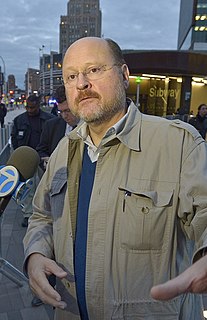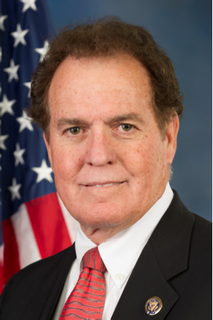A Quote by L. Neil Smith
Despite the Internet 's origin in the late 1960s as a government sponsored means of communication between the Department of Defense, private industry, and academia, it has been at its best and generated the greatest economic, social, and technological benefits since it was 'liberated' by the hordes of 'geeks' who were originally hired to run it by employers who were not themselves conversant with computers, and couldn't tell when their employees were exchanging official traffic or trading dirty jokes and recipes for marijuana brownies.
Quote Topics
Academia
Been
Benefits
Best
Between
Brownies
Communication
Computers
Defense
Department
Despite
Dirty
Dirty Jokes
Economic
Employees
Employers
Exchanging
Geeks
Government
Greatest
Hired
Industry
Internet
Jokes
Late
Liberated
Marijuana
Means
Means Of Communication
Official
Origin
Originally
Private
Recipes
Run
Since
Social
Sponsored
Technological
Tell
Themselves
Trading
Traffic
Were
Related Quotes
When I first saw China, there were no automobiles. There were no supermarkets. There were no high-rise buildings. There were no consumer goods. There were no restaurants that were at least accessible that foreigners could see. It was a Stalinist society, and a very poor Stalinist society. So the economic system has totally changed, and the private sector in the economic system is now the dominant sector. It didn't exist at all as late as 1979.
There were the days when women were under contract, and they were thought of as a commodity, so they hired the best writers and a lot of them were women at the time. This was in the thirties and forties, to make product for the people who were under contract, who were their assets to the studios. But that doesn't exist anymore - and as a result, the people who are in the industry write products that interest them.
Unaccountable private power concentrations that dominate economic and social life have the means to seek to "regiment the public mind," and become "tools and tyrants" of government, in James Madison's memorable phrase, as he warned of the threats he discerned to the democratic experiment if private powers were granted free rein.
The U.S. government doesn't build your computers, nor do you fly aboard a U.S. government owned and operated airline. Private industry routinely takes technologies pioneered by the government and turns them into cheap, reliable and robust industries. This has happened in aviation, air mail, computers, and the Internet.
The economic miracle that has been the United States was not produced by socialized enterprises, by government-unon-industry cartels or by centralized economic planning. It was produced by private enterprises in a profit-and-loss system. And losses were at least as important in weeding out failures, as profits in fostering successes. Let government succor failures, and we shall be headed for stagnation and decline.
Rich Indians typically tried to work around a dysfunctional government. Private security was hired, city water was filtered, private school tuitions were paid. Such choices had evolved over the years into a principle: The best government is the one that gets out of the way. The attacks on the Taj and the Oberoi, in which executives and socialites died, had served as a blunt correction. The wealthy now saw that their security could not be requisitioned privately. They were dependent on the same public safety system that ill served the poor.
When things are digital, they're all 1's and zero's, and so they commingle in ways we didn't anticipate and you could do things that were not like publishing or television, or computers, but were some intersection of those and that got known to be convergence, so between the switching, or trading of places and the convergence, you have today's media.






































